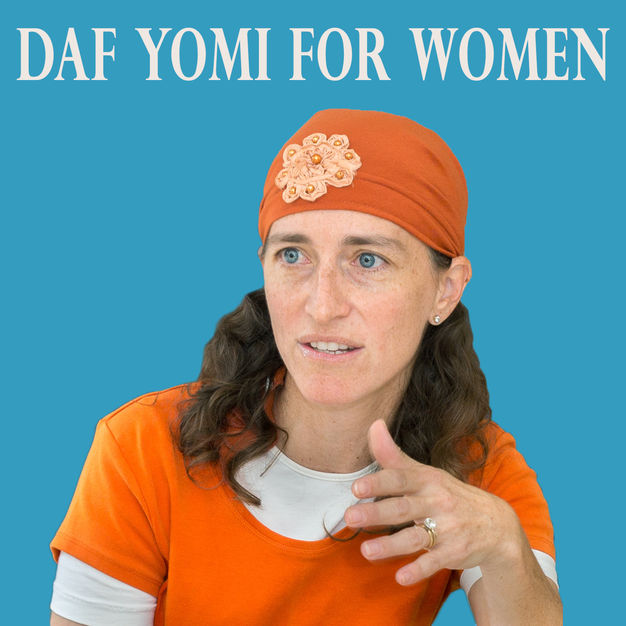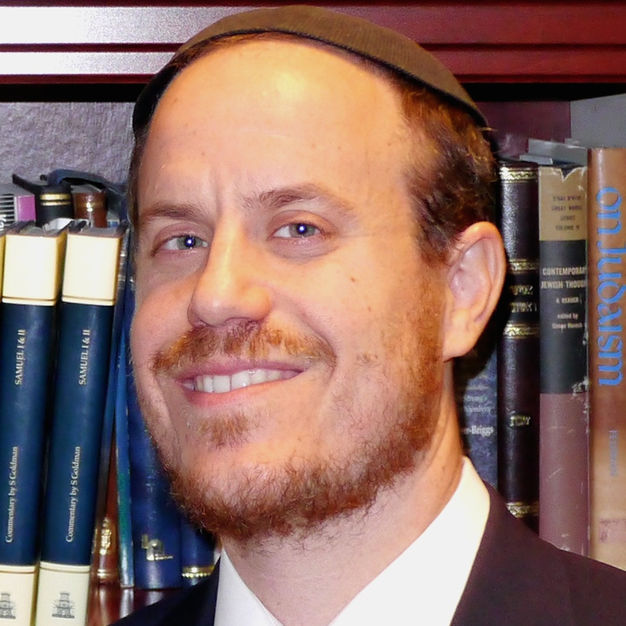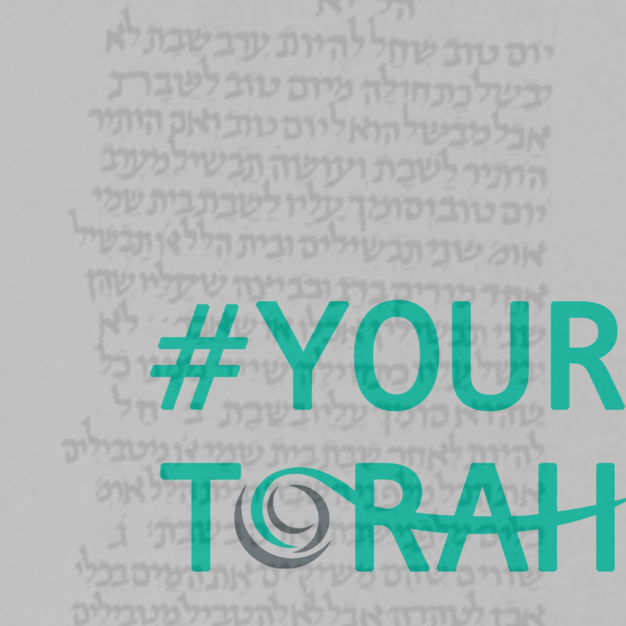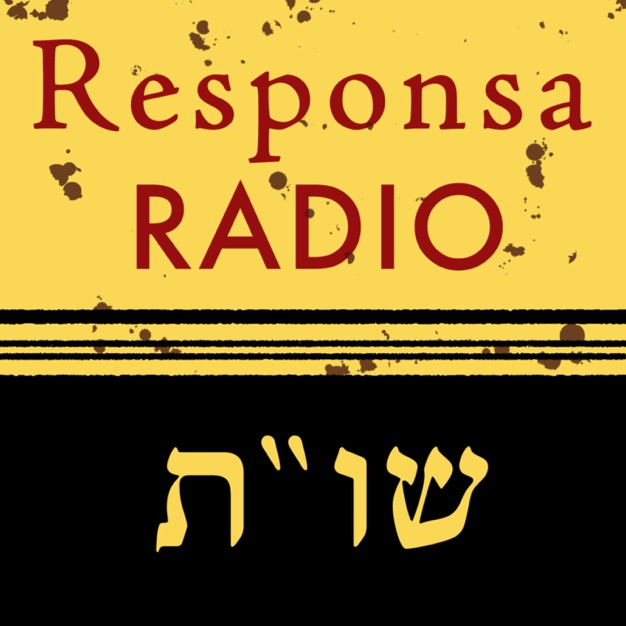
Daf Yomi for Women – דף יומי לנשים – English
Michelle Cohen Farber
Now including more than 1600 shiurim, Daf Yomi for Women is the first and only podcast featuring a daily talmud class taught by a woman.
- 42 minutes 14 secondsBava Metzia 61 - 7th Day of Pesach - April 29, 21 Nissan
What is the source indicating that both the borrower and lender are prohibited from borrowing or lending on interest? Why did the Torah find it necessary to delineate separate negative commandments for interest, theft, and exploitation (ona’ah), rather than deriving one from the other, considering their similarities in taking what isn't rightfully theirs? Furthermore, why does the Torah mention the Exodus from Egypt in verses concerning interest, tzitzit, and using fair measurements in business? Rabbi Yochanan and Rabbi Elazar debate whether the court can compel individuals who have collected interest at a fixed rate from the outset (ribit k’tzutza) to return the interest payments they received.
28 April 2024, 2:30 am - 43 minutes 16 secondsBava Metzia 60 - 6th Day of Pesach - April 28, 20 Nissan
What practices are permissible in conducting an ethical business? Can one commingle produce from various fields or dilute wine before selling it? What criteria determine what is allowed or prohibited? What tactics are deemed acceptable or forbidden in a competitive commercial environment? Different rabbis offer varying perspectives on these questions. The fifth chapter delves into the laws of interest. The Mishna initiates the discussion by delineating what is interest that is prohibited by Torah law and by rabbinic law. The Gemara elucidates the terminology used in the Torah - neshech (interest causing a loss for the borrower) and marbit (interest generating gain for the lender) - and elucidates that both terms signify the existence of two negative commandments concerning lending or borrowing money with interest that both apply in all cases.
28 April 2024, 2:00 am - 45 minutes 13 secondsBava Metzia 59 - Shabbat Chol Hamoed Pesach - April 27, 19 Nissan
It is regarded as a grave transgression to humiliate another person. Some emphasize the prohibition against verbally abusing one's spouse, noting that maintaining food (financial stability) in the household is advisable to preserve harmony. While many prayers may not always find immediate acceptance, the prayers of those who have suffered verbal abuse will always be heard, and God will punish the perpetrators. The story of the oven of Achnai illustrates the potency of prayers from those who have endured verbal abuse. Rabbi Eliezer, who stood against the majority opinion of the rabbis and was subsequently excommunicated and mistreated, serves as a prime example. Despite presenting miraculous signs and even a heavenly voice affirming the correctness of his stance, Rabbi Yehoshua asserted, "It is not in heaven." This narrative underscores the authority of the rabbinic system to establish its own truths, even if they diverge from the absolute truth of God. However, mentioning this story in this context highlights the impact of words and how the mistreatment of Rabbi Eliezer ultimately led to the death of Rabban Gamliel through his prayers. The prohibition against abusing converts is emphasized, with the Torah warning against it in thirty-six (or forty-six) instances. This underscores the severity of the offense and the importance of treating converts with respect and dignity.
26 April 2024, 2:30 am - 44 minutes 17 secondsBava Metzia 58 - 4th Day of Pesach - April 26, 18 Nissan
The Mishna established that in cases involving hekdesh (sanctified property), a shomer who watches for free is exempt from taking an oath, while a paid shomer is exempt from liability in cases of theft or loss. However, there are tannaitic sources that appear to contradict the Mishna, prompting various proposed resolutions. Rabbi Shimon distinguishes between different categories of sanctified items, arguing that some are subject to exploitation laws. Rabbi Yehuda excludes specific items from exploitation laws altogether. The Gemara elucidates both positions. The Mishna asserts that alongside the Torah prohibition against exploitation in monetary matters, there exists a Torah injunction against verbal abuse. Various examples are cited to underscore the severity of this offense, highlighting its gravity in Jewish law.
26 April 2024, 2:00 am - 34 minutes 47 secondsBava Metzia 57 - 3rd Day of Pesach - April 25, 17 Nissan
Although certain categories are exempt from exploitation laws, does this exemption extend to cases where one party exploits another at a higher rate (bitul mekach)? Rabbi Yona and Rabbi Yirmia each offer different answers in the name of Rabbi Yochanan. A challenge is posed to Rabbi Yirmia's position based on another statement attributed to Rabbi Yochanan. Several proposed explanations are offered to reconcile this discrepancy. Additionally, the derivations for the exclusion of these categories in other Mishnaic laws, such as double payment and laws governing the responsibilities of shomrim, are explored.
25 April 2024, 2:00 am - 45 minutes 23 secondsBava Metzia 56 - 2nd Day of Pesach - April 24, 16 Nissan
Different rabbis offer an opinion about whether or not Rabbi Meir believes that the rabbis made rabbinic laws stringent like Torah laws. They cite various sources to support their positions. Abaye analyzes the comments of the different rabbis, arguing that different levels of rabbinic laws exist, including those punishable by human courts, divine punishment, and negative prohibitions. Thus, he contends that comparing these various levels to prove Rabbi Meir's stance is flawed. The Mishna enumerates specific categories exempt from the general laws of ona’ah, such as land, slaves, documents, and sanctified items. Similarly, laws concerning double payment and the responsibilities of shomrim do not apply to these categories. Additional distinctions are made by other tannaim, expanding the list further. The exceptions to ona’ah are derived from specific passages in the Torah.
24 April 2024, 2:00 am - 39 minutes 19 secondsBava Metzia 55 - 1st Day of Pesach, April 23, 15 Nissan
If one misuses consecrated property unknowingly, one must repay the value and add one-fifth (chomesh). Rabbi Yehoshua ben Levi held that the additional one-fifth payment is not added if one is redeeming a secondary hekdesh, an item that was sanctified from an item that was already sanctified (via hatpasa). The Gemara questions a statement made in a braita that was brought to support Rabbi Yehoshua ben Levi and resolves it. Another braita is brought as support for Rabbi Yehoshua ben Levi. The Mishna lists the minimum amount of money for ona’ah and partial admission (modeh b’miktzat). It also lists five laws for which the minimum amount is a pruta. Levi has a different list of the five laws and the Gemara discusses why each list differs from the other. The Mishna lists 5 cases where one needs to add one fifth. One of the items is d’mai – a case where there is reason to think that ma’asrot (tithes) may not have been taken and the rabbis required one to separate the tithes just in case. Rabbi Elazar questions why the Mishna lists that one would add one-fifth if a non-kohen ate truma taken from d’mai, which is only truma by rabbinic law. Why would it be treated as stringently as a Torah obligation? They answer that the Mishna is according to Rabbi Meir’s approach that the rabbis make their decrees as strong as the Torah as is proven from a case of divorce law where Rabbi Meir is stringent. However, they raise a difficulty with saying that this is Rabbi Meir’s position.
22 April 2024, 5:30 am - 45 minutesBava Metzia 54 - April 22, 14 Nissan
Today's daf is sponsored by Lori Stark in loving memory of her mother in law, Sara Shapiro and her father Nehemiah Sosewitz. "Sara proudly shared that her father taught her some Talmud at a time when that was not done. He came to Chicago from Stashov Poland and was known for delivering the laundry along with a dvar Torah. Sara was a highly respected Jewish educator in Chicago. May both their memories be for a blessing."
Today's daf is sponsored by the Hadran women of Long Island in honor of the birth of a grandson to our friend and co-learner Leah Brick. "May the entire family be zoche to raise him לתורה ולחופה ולמעשים טובים and may this simcha be one of many we will celebrate together."
When redeeming maaser sheni, the owner must add one-fifth more than the value of the produce. Is this one-fifth of the principal or one-fifth of the total once the one-fifth is added (1/4 of the principal)? After proving it is 1/4 from a tannatic source, a braita is quoted showing there is a tannaitic debate on how to calculate the one-fifth. If one does not add the one-fifth, is the produce considered redeemed? After answering this question from a tannaitic source proving that the one-fifth is not essential and the produce can be considered redeemed even without the one-fifth, the Gemara suggests that perhaps it is a tannaitic debate. However, this suggestion is rejected as all agree it is not essential but the rabbis deliberate about whether or not one can eat the produce by rabbinic law if the one-fifth has not been added as a way to prevent negligence. Regarding redeeming hekdesh, sanctified items, there is no concern for negligence as the treasurers collect the one-fifth payment. It is still not considered redeemed until one-fifth is added, but if it were Shabbat, one could eat the hekdesh item on account of the mitzva of oneg Shabbat. Rami bar Hama lists three rules relating to one-fifth payment in hekdesh, truma and maaser - do the same rules apply to the one-fifth payment as for the principal - if hekdesh, can it be redeemed on land, if for truma that one stole, does it need to be paid in produce, and if for maaser, can it be redeemed on an asimon? One who stole and denied it or a non-kohen who ate truma, can potentially pay one-fifth on a one-fifth payment. Is the same true for maaser and hekdesh? Is there a connection between this issue and the statement of Rabbi Yehoshua ben Levi that the additional one-fifth payment is not added if one is redeeming a secondary hekdesh, an item that was sanctified from an item that was already sanctified (via hatpasa)?
22 April 2024, 5:11 am - 45 minutes 54 secondsBava Metzia 53 - April 21, 13 Nissan
This week's learning is sponsored by Lynne Cassouto in loving memory of her mother, Ann Cassouto, Chana bat Moshe v'Henneh, as her 11 months of kaddish ends on Pesach. "She was deeply devoted to Jewish tradition, prayer, and text, and made sure her children received a strong Jewish education. She is forever missed, may her memory be a blessing for clal Yisrael."
Today's daf is sponsored in loving memory of Anita Dinerstein, from her children and grandchildren on her first yahrzeit. “Her commitment to learning and the Jewish people continue to inspire us.”
Today's daf is sponsored by Mona & David Schwartz and family in loving memory of their mother and grandmother Mary Horowitz, Miriam Etel bat Aharon Halevi & Mirel on her 30th yahrzeit. "A woman whose home personified hachnasat orchim. May her neshama have an aliyah."
Chizkiya says that maaser sheni produce that has less than the value of a coin can be redeemed on a coin that was used previously to redeem maaser sheni because there must be a little bit of value still left on the coin from the last time, as people aren't exacting in their calculations and generally use a bigger coin than what is needed. The Gemara questions this by bringing in a Mishna that implies that maaser sheni that gets mixed with non-maaser items is nullified in a majority. If Chizkiya is correct, then maaser should always be something that can never be nullified in a mixture because it can be fixed by redeeming, as per Chizkiya's suggestion, in which case it is a davar sheyesh lo matirin which can never be nullified. The Gemara tries to answer this question. A braita quoted in the discussion mentions two cases of maaser sheni that are nullified in a majority - less than and pruta and maaser sheni that was brought into Jerusalem and left Jerusalem. Why is maaser sheni brought into Jerusalem and then left unable to be redeemed (and therefore nullified in a majority)? After answering this question by establishing the details of the situation, Rav Huna bar Yehuda suggests an alternative reading of the braita. There is an amoraic debate regarding the premise of Chizkiya's ruling that maaser sheni that is less than a pruta cannot be redeemed onto a coin - is it when the principal is less than a pruta or the one-fifth is less than a pruta? In general, how is the one-fifth payment calculated - one-fifth of the principal or one-fifth of the total once the amount of the one-fifth is added (1/4)?
21 April 2024, 5:17 am - 49 minutes 50 secondsBava Metzia 52 - Shabbat April 20, 12 Nissan
Can one use money that is devalued? At what percentage would it be considered ona’ah and one can claim back the amount he/she was exploited by the devaluation of the coin? There is a debate between Rabbi Meir, Rabbi Yehuda and Rabbi Shimon. Why is this different from ona’ah with clothing where there is no debate? Once a coin is devalued to more than half its original value, the coin must be destroyed. Why? There is a debate about whether one needs to destroy the coin from the rate of ona’ah until half of its value or just below half its value. Two difficulties are raised against Rav Huna who held by the first option. What is the time frame allotted for getting back the exploited money? Is it the same as for clothing or different? The Mishna mentions an exception to the rule – a case where one can return it even over a year later. How is this case understood by Rav Chisda? A coin that is devalued can be used for redeeming maaser sheni produce. How does this work?
19 April 2024, 5:30 am - 48 minutes 46 secondsBava Metzia 51 - April 19, 11 Nissan
Today's daf is sponsored by Jeffrey and Jill Shames in loving memory of Jill's Mom, Seena Baker, שפרה בת סול וברכה who passed away 9 years ago. "Mom, we pray that wherever you are you experience the reflection of your wisdom and love in your children, your children's children and your children's children's children."
Is the time allotted for getting your money back in a case of over/undercharging the same for the buyer and the seller? Do the laws of exploitation apply only to businesses and not to individuals? Does it depend on what they are selling? Are there certain merchants to whom laws of exploitation do not apply or are there certain laws of exploitation that do not apply to any merchants? The answer to these questions depends upon how one understands Rabbi Yehuda's opinion in the Mishna. If one sells an item upon condition that the buyer will not bring a claim of exploitation, is that a valid condition? Rav and Shmuel disagree. Do their approaches perfectly align with the debate between Rabbi Meir and Rabbi Yehuda in a case where one betroths a woman and conditions it upon not giving her the financial rights that a wife has in a marriage? Does it depend on whether the buyer agrees with or without knowing that he/she was overcharged?
19 April 2024, 5:24 am - More Episodes? Get the App
Your feedback is valuable to us. Should you encounter any bugs, glitches, lack of functionality or other problems, please email us on [email protected] or join Moon.FM Telegram Group where you can talk directly to the dev team who are happy to answer any queries.
 5-Minute Daf Yomi with Rabbi Shmuel Herzfeld
5-Minute Daf Yomi with Rabbi Shmuel Herzfeld
 #YourTorah
#YourTorah
 Daf Yomi from Yeshivat Chovevei Torah
Daf Yomi from Yeshivat Chovevei Torah
 Responsa Radio - Jewish Public Media
Responsa Radio - Jewish Public Media